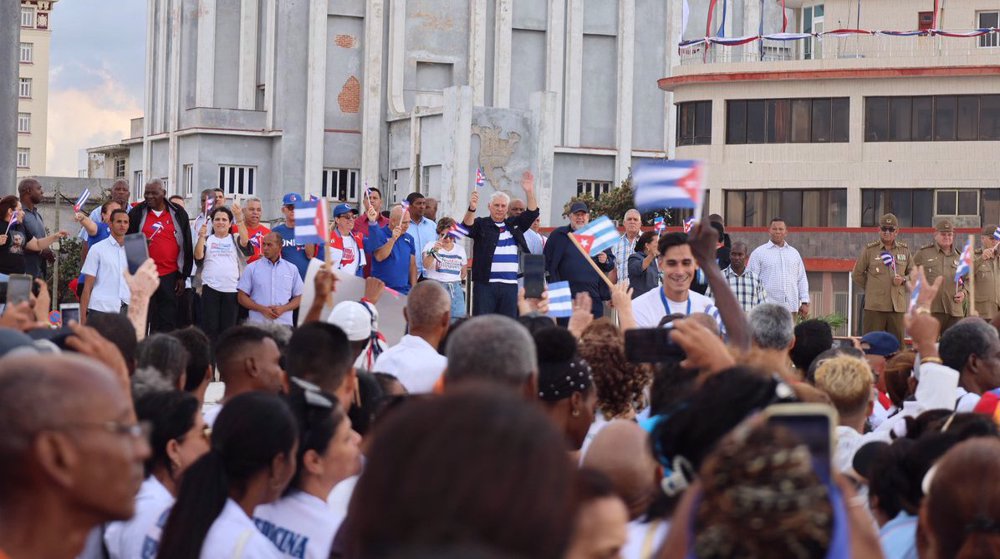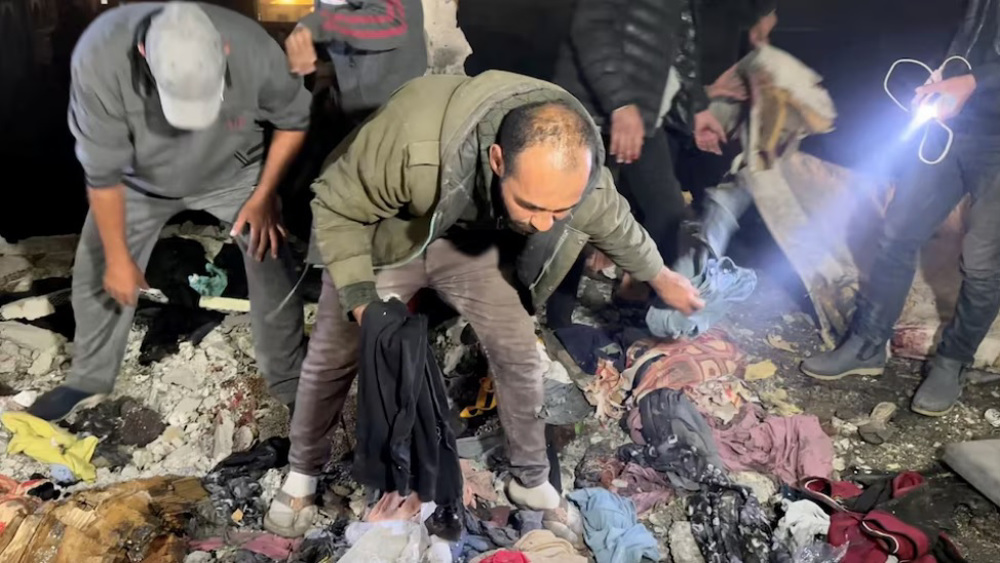Fears of civil war in Bolivia as US welcomes power grab
Bolivia is teetering on the brink of a civil war following violent protests which forced President Evo Morales to step down in order to avoid bloodshed.
A senator proclaimed herself Bolivia's interim president Tuesday in an effort to fill the power vacuum, but Morales condemned the move as a "sneaky coup".
The power grab came just as Morales, who transformed the Andean nation as its first indigenous president, left the country for Mexico with the aim of helping Bolivia recover from weeks of violent protests.
But the events unfolding in the wake of deputy Senate speaker Jeanine Anez proclaiming herself as interim president portended more violence ahead as rival protesters fought on the streets of the capital.
Shortly after Morales left for Mexico where he was granted asylum, he accused opposition leader Carlos Mesa and protest leader Luis Fernando Camacho of staging a coup with the help of police.
Así fue mi primera noche después de dejar la presidencia forzado por el golpe de Mesa y Camacho con ayuda de la Policía. Así recordé tiempos de dirigente. Muy agradecido con mis hermanos de las federaciones del Trópico de Cochabamba por brindarnos seguridad y cuidado. pic.twitter.com/O1EpDhS5Qw
— Evo Morales Ayma (@evoespueblo) November 12, 2019
His departure came after what is seen by many as a dramatic coup against the one-time llama shepherd from the Bolivian highlands and former coca growers’ union leader.
As president, Morales helped lift millions out of poverty, increased social rights and presided over nearly 14 years of stability and high economic growth in South America’s poorest country.
Bolivia has been experiencing years of political and economic stability and growth under his rule. The economy has grown by an annual average of about 4.5 percent, well above the regional average, and the International Monetary Fund (IMF) predicts it will grow at four percent this year.
"It pains me to leave the country for political reasons, but I’ll always be concerned,” Morales said on Twitter Tuesday. "l’ll return soon, with more strength and energy.”
Coup or revolt?
The opposition has claimed that a fight for "democracy and peace" led Morales to resign and depart the country.
Mexican Foreign Minister Marcelo Ebrard said on Monday the Bolivian military had broken with the constitution by pressing Morales to stand down.
Uruguay, Cuba and Venezuela have also said Morales was deposed illegally.
Morales, Bolivia’s first indigenous leader, was declared president for a fourth term in the election but the opposition rejected the outcome and claimed that there had been fraud in the election process.
That sparked violent street protests, which left three people dead and hundreds more wounded, in what the Morales government already called a coup bid.
Morales also denied any wrongdoing but agreed to call for a new election. He said the country's Supreme Electoral Tribunal (TES) would be overhauled before the poll, with the parliament choosing its members.
The opposition rejected the request, prompting Morales to announce his resignation on Sunday as violent protests pushed the country to the brink.
Clashes erupt between police, protesters
On Tuesday, thousands of people took to the streets, calling for Morales to return to the country.
Scores of people were wounded in clashes with police. Video footage showed police battling demonstrators in the city of Cochabamba.
Police said large crowds of people were also heading toward the capital from the nearby city of El Alto to join the protests.
Around the capital’s central Murillo square and other parts of the city, protesters blocked roads.
The military commander ordered troops to back up police, using "proportionate force against acts of vandalism groups that cause terror in the population."

Trump celebrates ouster
The US reacted to the departure as “a positive step to begin calming the situation on the ground in Bolivia," according to a senior administration official.
President Donald Trump also said Washington “applauds … the Bolivian military for abiding by its oath to protect not just a single person, but Bolivia's constitution.”
The statement, posted on the White House website, raised concerns among observers, with one describing it “like a chilling warning of more coups to come."
The official @WhiteHouse statement on #Bolivia reads like a chilling warning of more coups to come.https://t.co/MpRLXvBLQ9 pic.twitter.com/qcGc0pLKzE
— Alan MacLeod (@AlanRMacLeod) November 11, 2019
Trump said the events in Bolivia send “a strong signal to the illegitimate regimes in Venezuela and Nicaragua.” Those are the governments that have long been resisting Washington’s coup attempts.
Iran lifts ban on WhatsApp, Google Play
VIDEO | Palestinian childhood under threat
Yemeni forces strike Israeli military site with hypersonic missile
Yemeni missiles alter US, Israel’s calculations: Iranian FM
Israel provides full support for theft of aid to starve Gazans: Report
'Israel booby-trapped walkie-talkies, pagers years before Lebanon blasts'
Gaza Health Ministry calls for urgent intl. help to protect hospitals amid Israeli genocide
Stakes involved in Iran’s partnership with Eurasian Union















 This makes it easy to access the Press TV website
This makes it easy to access the Press TV website